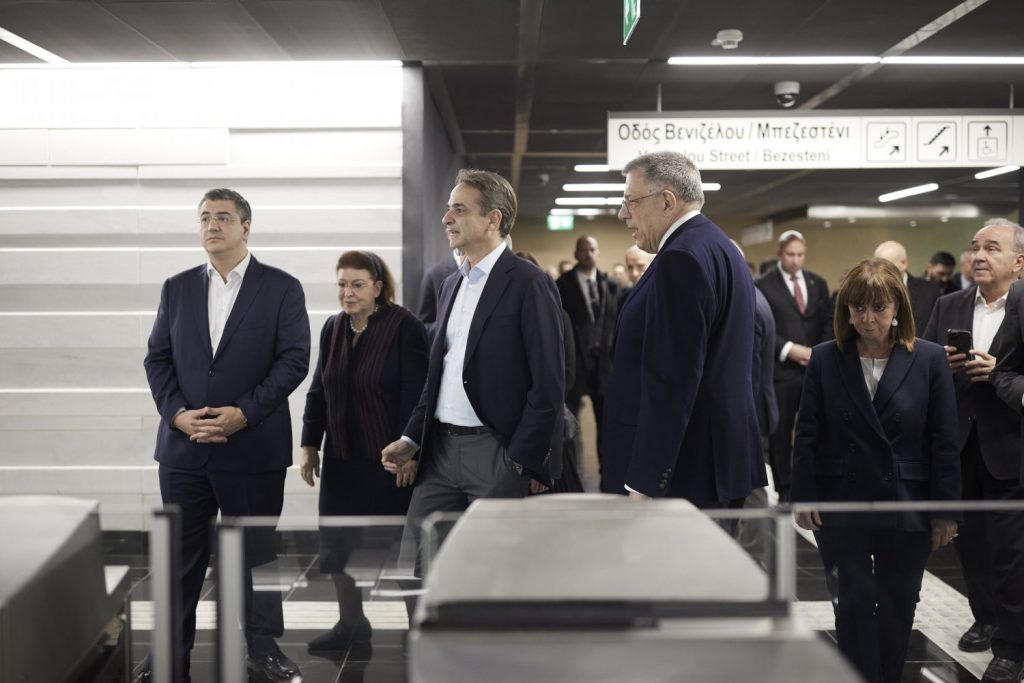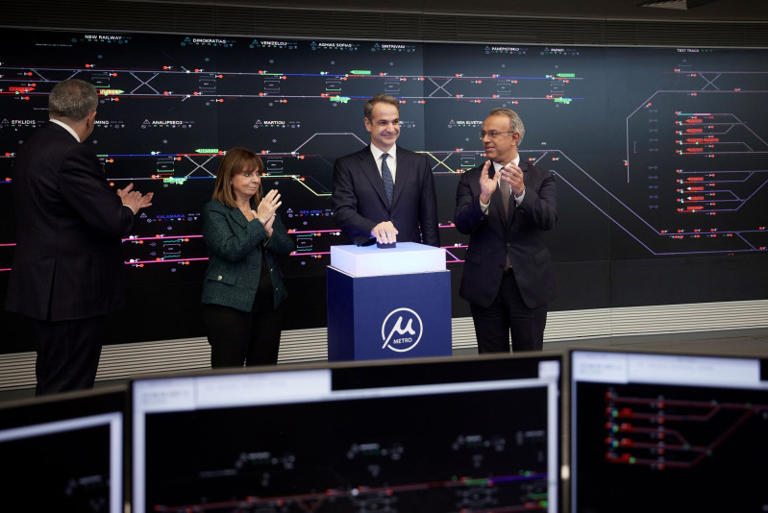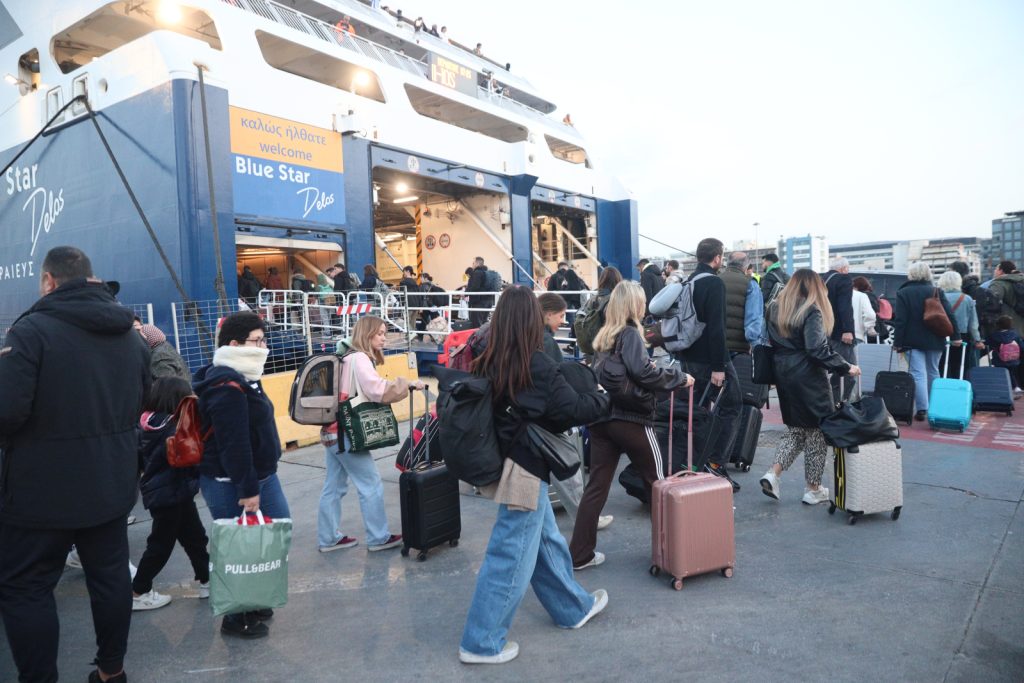Saturday marked the inauguration of the long-awaited Thessaloniki metro, celebrated with speeches by Greek Prime Minister Kyriakos Mitsotakis, EU Commissioner of Sustainable Transport and Tourism Apostolos Tzitzikostas, and other key officials involved closely in delivering the project.
Anxious Citizens, Candid Speeches
Meanwhile, outside the metro station, crowds of excited citizens braved the rain and watched the ceremony via live stream to witness the Prime Minister officially start operations and to experience firsthand Thessaloniki’s new sustainable transportation system.
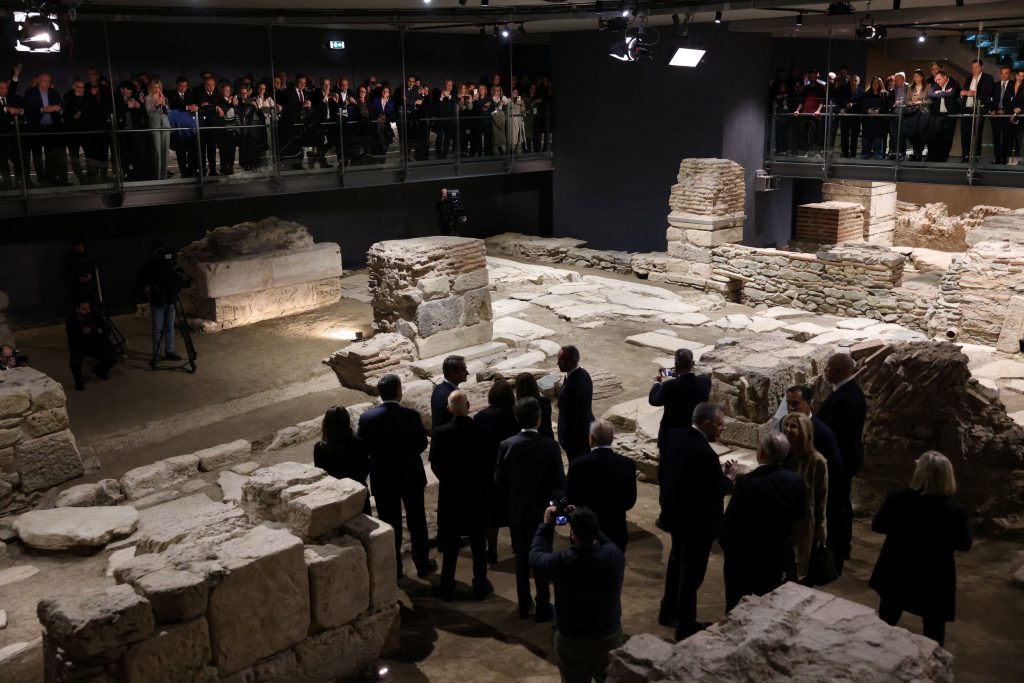
Greek President Katerina Sakellaropoulou, Prime Minister Kyriakos Mitsotakis and other officials visit a subway station to admire artefacts unearthed during construction work in Thessaloniki, Greece, November 29, 2024. The subway is set to officially open this week after two decades of construction. REUTERS/Alexandros Avramidis/Pool
The speeches were candid, acknowledging the excessive delays, citizens’ justified frustration, and the decades of mismanagement that inflated the project’s cost- to a staggering €3 billion for just 13 stations.
The Thessaloniki metro’s origins trace back 48 years when former Prime Minister Konstantinos Karamanlis added the project to Greece’s 1976 budget. Construction, however, only began 22 years ago.
Thessaloniki Metro & Hopes for a More Sustainable City
Today, the city’s residents and visitors can finally traverse 9.6 km on driverless trains along a line that integrates cutting-edge technology and celebrates the region’s rich historical heritage in what has been called a metro museum.
The hope is that the metro will service 240,000 persons on a daily basis and remove 57,000 cars from the road, along with their emissions, as the public begins to embrace and make use of the metro.
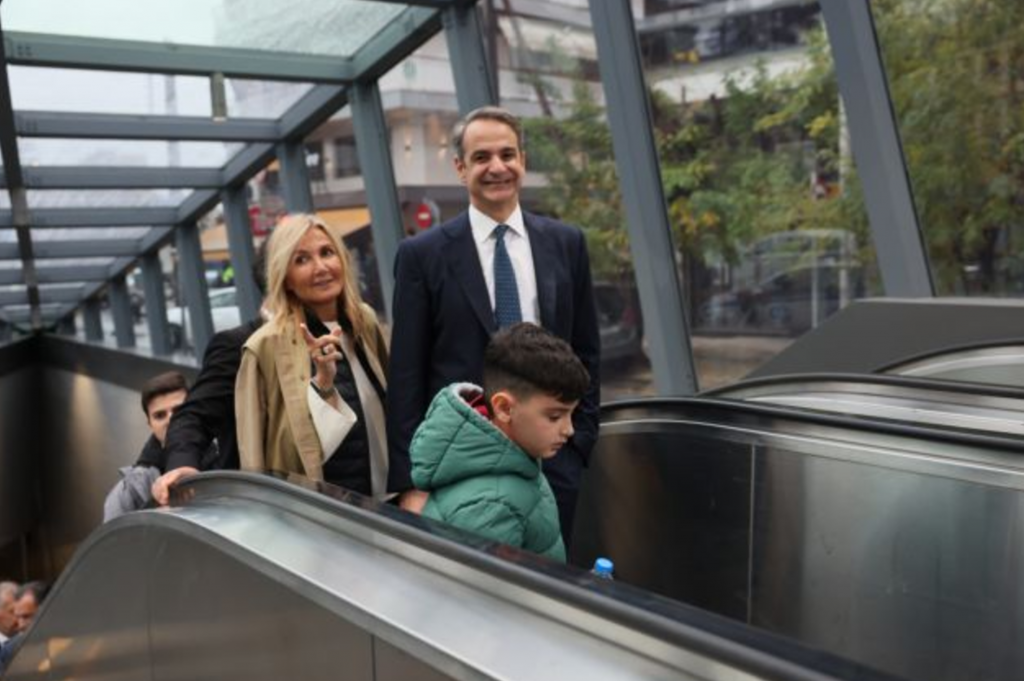
Source: Tovima.gr
The Commissioner pledged to follow the metro’s continued development as he officially undertakes his new responsibilities in Brussels as Commission as of December 1.
Thanking the Prime Minister for his dedication to the Thessaloniki metro project, Tzitzikostas remarked that the metro’s completion is ultimately important because it repairs the trust between Thessaloniki’s citizens and the Greek government.
However, reactions on social media and interviews of Greek citizens on the streets outside of the metro stations reveal mixed emotions.
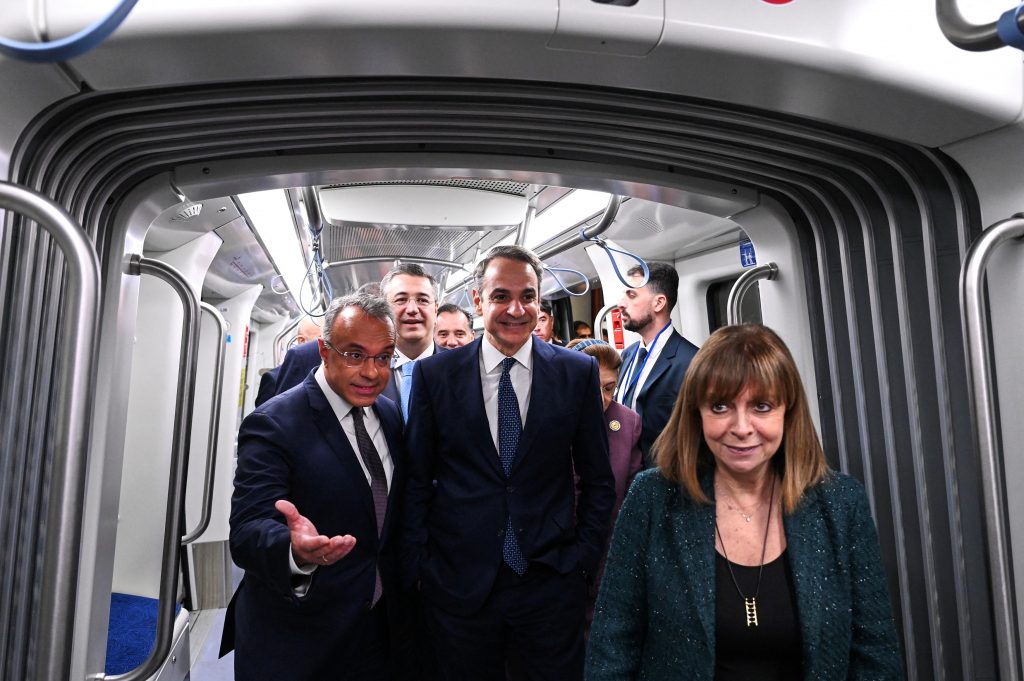
Greece’s Prime Minister Kyriakos Mitsotakis, Christos Staikouras, Greek Minister of Infrastructure and Transport and Greek President Katerina Sakellaropoulou, ride onboard a metro wagon, during the inauguration day of the Thessaloniki metro, in Thessaloniki, Greece, November 30, 2024. Giannis Papanikos/Pool via REUTERS
While many expressed excited disbelief at the metro’s debut or cautious enthusiasm, a vocal minority remain critical. Concerns linger over the substantial profits earned by contractors, the disruption of archaeological sites facilitated by archaeological authorities to accommodate station development, and the perceived cozy relationship between big business in Greece and government.
As a result, it remains uncertain whether Prime Minister Mitsotakis’ “seeing is believing” approach will indeed be enough to silence these critics. For many citizens of Thessaloniki, tangible progress on the envisioned metro expansions over the next few years may ultimately be what is needed for citizens to ‘turn the page’ on decades of frustration and mistrust.
